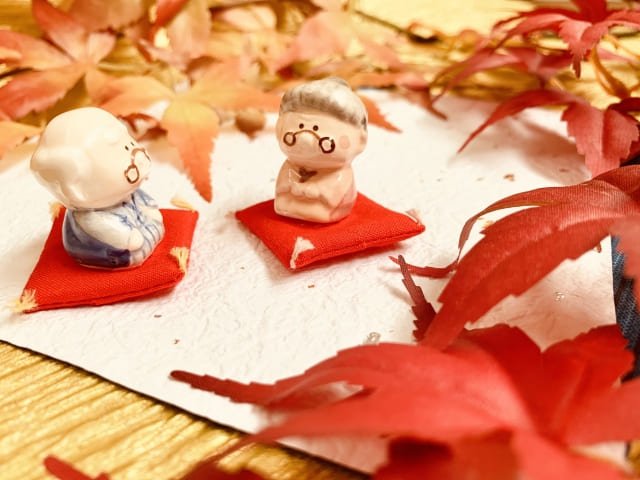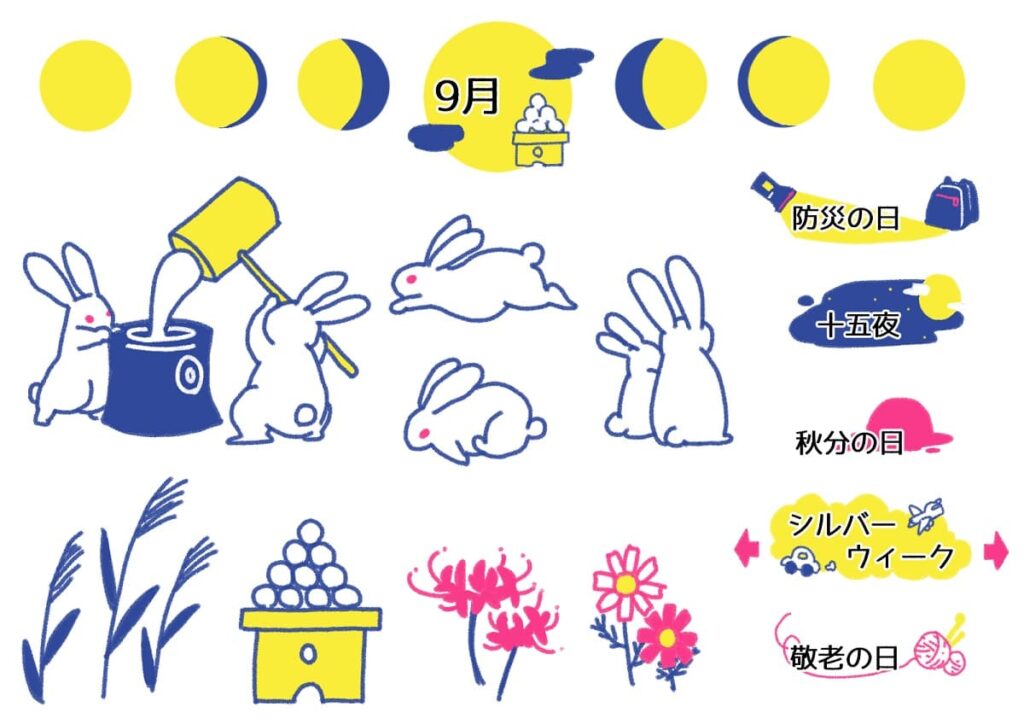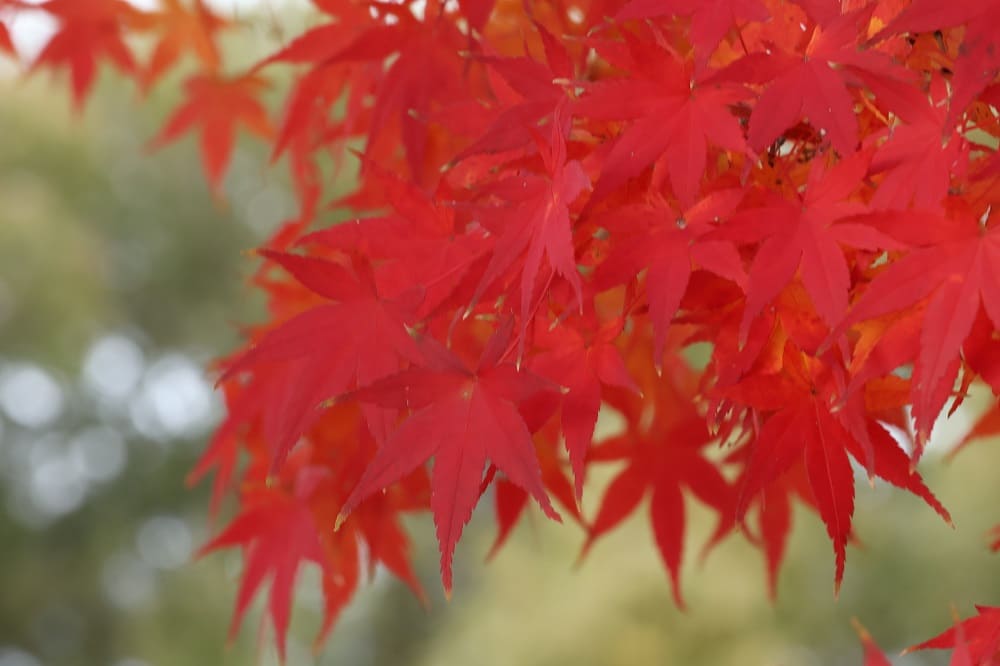Have you ever heard of Silver Week in Japan?
While Golden Week in spring is well known as Japan’s biggest holiday season, there’s actually another chance for a long holiday break in autumn — called Silver Week.
But here’s the catch: it doesn’t happen every year. Instead, it appears only when Japan’s calendar aligns just right, which makes it feel like a special event whenever it does occur.
In this article, we’ll explain everything you need to know about Silver Week in Japan — what it is, how it works, why it has such a name, and when the next one will happen. Let’s dive in!
What Is Silver Week?

What’s “Silver Week”?

Silver Week is Japan’s big holiday break in the fall.
The “Autumn Version” of Golden Week

Silver Week is a potential string of public holidays in September, similar to Golden Week in May.
Unlike Golden Week, which occurs every year, Silver Week only happens when certain national holidays fall into the perfect arrangement.

If you want to know about Golden Week,
check the article below.
It All Depends on the Calendar

Silver Week relies on the timing of two Japanese public holidays in September:
- Respect for the Aged Day (Keirō no Hi) – The 3rd Monday of September
- Autumnal Equinox Day (Shūbun no Hi) – Usually on September 22 or 23
If the calendar lines up so that:
- Respect for the Aged Day is on a Monday
- Autumnal Equinox Day is on a Wednesday
Then the Tuesday in between becomes a holiday too, thanks to a rule in Japan’s holiday law called “Kokumin no kyūjitsu” (National Holiday), which makes a working day between two holidays automatically a holiday.
That means:
- Saturday
- Sunday
- Monday (Respect for the Aged Day)
- Tuesday (National Holiday)
- Wednesday (Autumnal Equinox Day)
= a 5-day holiday!

I don’t agree with that setup, Saturday and Sundays are already days off for a majority of people. They should just make it a 7-day off Holiday week. Just add Thursday and Friday in there.

Yes! I applaud your idea, Gaki! A week off sounds great lol.
How the Holiday Timing Works

So, how do these two holidays line up?
- Respect for the Aged Day was moved to the third Monday of September starting in 2003 due to the “Happy Monday System,” a law that moves certain holidays to Mondays to create more long weekends.
- Autumnal Equinox Day is based on astronomical calculations and changes slightly every year, typically falling on September 22 or 23. The exact date is officially announced by the National Astronomical Observatory of Japan on February 1 of the previous year.
This means whether Silver Week appears depends on luck and timing — it only happens when the two holidays land just right.

Ah, I see — that’s why it doesn’t turn into a long holiday every year.
Where Does the Name “Silver Week” Come From?

“Silver Week” sounds kind of simple, but it’s easy to remember.
First Used in 2009

The term “Silver Week” became popular in 2009, when the perfect holiday alignment occurred for the first time under the current system.
That year, a five-day holiday from September 19 (Saturday) to September 23 (Wednesday) took place. A poll by Mitsubishi Electric Building Tech Services asked the public what to call this rare autumn break, and the most popular answer was “Silver Week.”
The media picked it up, and the name caught on quickly.
Not Just for Seniors!

Some people assume “Silver” refers to elderly people, since it coincides with Respect for the Aged Day. But in reality, it’s more like a counterpart to Golden Week — with “Silver” representing a second-place metal and autumn’s cooler tones.
So don’t worry — Silver Week is for everyone!
When Is the Next Silver Week?

The next Silver Week is scheduled to occur in 2026!
Here’s how the calendar looks that year:
- Monday, September 21 – Respect for the Aged Day
- Wednesday, September 23 – Autumnal Equinox Day
- Tuesday, September 22 – becomes a National Holiday
So from Saturday, September 19 to Wednesday, September 23, Japan will enjoy another 5-day Silver Week holiday.
Better start planning now!

Let’s go on a trip somewhere during Silver Week in 2026!

Of course !

I want to go to an onsen and enjoy Nature!
FAQ About Silver Week

- QDoes Silver Week happen every year?
- A
No. It only happens when the dates of Respect for the Aged Day and Autumnal Equinox Day line up to create a long holiday.
- QDoes Autumnal Equinox Day change every year?
- A
Yes. It’s determined by astronomy and announced every February 1 for the following year.
- QWhy does the Tuesday become a holiday?
- A
According to Japanese holiday law, any weekday sandwiched between two public holidays automatically becomes a “National Holiday.”
Final thoughts about Silver Week
Silver Week is a rare but exciting Japanese holiday season that occurs in September, only when:
- Respect for the Aged Day (3rd Monday) and
- Autumnal Equinox Day (around September 22–23)
line up to create a long break, with Tuesday becoming a bonus day off.
Thanks to this unique calendar combination, Silver Week offers up to 5 consecutive days off, but only happens once every few years — the next one is in 2026.
Whether you’re living in Japan or planning a trip, keep an eye on the calendar! Silver Week might just be your perfect chance to explore Japan in the beautiful autumn season.

If you are interested in Japan, you may love these games!

Yes! Let’s play!






Comments